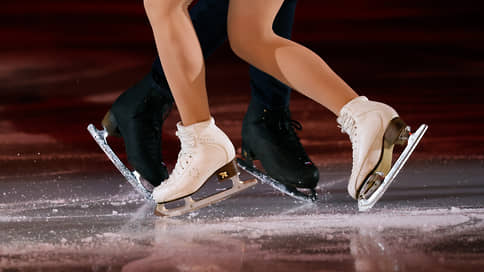Russian figure skaters entered into the code
[ad_1]

The Russian Figure Skating Federation (FFKKR) has approved a new Code of Ethics that regulates the behavior of athletes and other participants in the competition. According to the document, figure skaters, for example, are actually forbidden to criticize the work of judges and lose self-control after a loss, and their mentors are prohibited from negotiating the “transfer” of students of other specialists to their group without informing their mentors. Given the traditions of Russian figure skating, it can be assumed that its representatives will have problems with the observance of the code.
The Russian Figure Skating Federation has published updates on its official website in the “General Documents” section. Chief among these updates is the new Code of Ethics approved by the FFKKR. Its goal is “the establishment of ethical standards and the provision of a unified moral and normative basis for the behavior of all persons who make up the professional community of figure skating.” The latter refers to both athletes and coaches, judges, as well as functionaries.
The most notable section of the 15-page document is the section on behavioral requirements for skaters themselves. There are enough of them. Thus, athletes are urged to “avoid public condemnation in an incorrect and rude form of the results of competitions and decisions of the referee team, including in the Internet information and telecommunication network, social networks and other information communities or resources.” Moreover, the FFKKR clarifies that they cannot even “question” the actions of the judges, “their honesty, impartiality.” Also, skaters must “avoid conflict situations that could damage the reputation of the athlete himself or his rivals, as well as the authority of the FFKKR”, “keep composure in case of loss, with dignity paying tribute to the victory and skill of the opponent” and “refrain from public speaking, including in the media, during the competition period, unless otherwise agreed with the FFKKR press officer.
Two more recommendations of the Code of Ethics look interesting. One insists that skaters do not answer “hypothetical questions” (as an example, the beginning of such a “what if …” question is given), the second insists that they cannot discuss issues “the solution of which is under discussion” . At the same time, they must remember that “any information published on personal social networks can be used in the media as an athlete’s opinion, his statement, the position of the organization he represents.”
There are also several requirements for coaches, including a ban on “negotiating with athletes from other clubs/coaches with a transfer proposal” and even “talking” if they “could be construed as transfer proposals”. The FFKKR clarified that when a skater from another club/coach contacts him with a desire to transfer to him, the coach to whom the athlete wants to transfer, guided by the principles of collegiality, respect and partnership, informs the current coach of the athlete, as well as the head of the sports school for the purpose of settlement and discussion transition conditions. In addition, mentors, as well as their wards, should not “question” the “honesty and impartiality” of the arbitrators.
For violations of the provisions of the Code of Ethics, a voluminous set of sanctions is provided, the decision on which, after consideration of the relevant case by the ethics commission of the FFKKR, will be taken by the executive committee of the structure. Depending on the severity of the offense, the offenders will be warned, fined (including with the obligation to “make a public apology” or publish a “reprimand” on the federation’s website), annulment of the competition result, temporary or permanent disqualification, exclusion from the Russian national team, and a ban on visiting events and competitions held under the auspices of the FFKKR.
It will be extremely interesting to look at the application of the Code of Ethics in practice. The fact is that most of its provisions are not very consistent with the habits and traditions that have become entrenched in domestic figure skating.
Only in the last two or three seasons can one recall a series of episodes that would now be unequivocally interpreted as a violation of ethical regulations. This is, say, the hysteria of Alexandra Trusova, who lost gold at the Beijing Olympics in February of this year, caught on video. She burst into tears, pushed away coach Eteri Tutberidze, began to shout loudly that she “hates” figure skating, and immediately after the awards ceremony she took off the silver medal, clearly demonstrating “doubts” about the fairness of the judges’ verdict.
“Losing self-control” and other Russian stars. So, at the 2021 World Championships in Stockholm, Alexandra Boykova, performing in a duet with Dmitry Kozlovsky, was unhappy with third place, threw a badge at her partner and ran away. Prior to this, Kozlovsky himself – on the contrary, after a very successful performance at the Russian stage of the Grand Prix – shouted out a phrase, presumably addressed to competitors – Anastasia Mishina and Alexander Gallyamov: “This is our place! In queue!”.
Coaches also have a habit of criticizing judges. Let’s say that Evgeni Plushenko evaluates the work of arbitrators with an enviable frequency. For example, two years ago, at the Russian Championships, the two-time Olympic champion said that he did not understand what caused the low scores of Alexandra Trusova, who was at that time his ward: “The best rental, she just had to jump out of the dress.” However, many of Plushenko’s colleagues allow themselves such remarks, who, according to Kommersant’s sources in Russian figure skating, also do not always inform their colleague about the desire to organize a “transfer” of the skater, often first contacting the athlete himself.
[ad_2]
Source link









